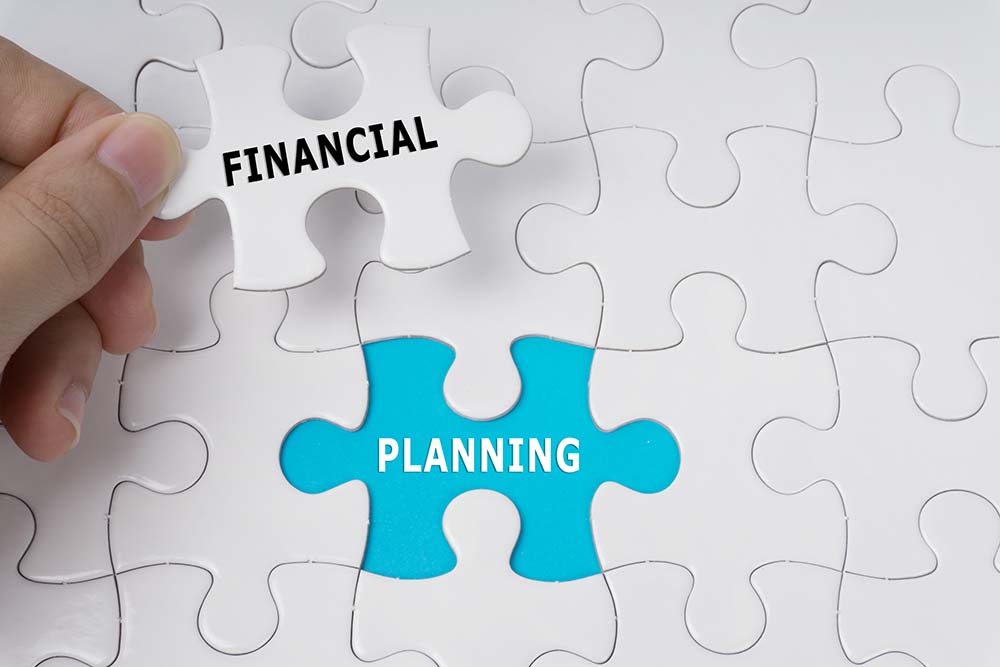Financial planning is a fundamental aspect of managing your personal or business finances. It involves creating a roadmap for your financial future by setting goals, formulating strategies and making informed decisions. In this article, we will delve into the significance of financial planning and explore the numerous benefits it offers. Whether you are aiming to achieve specific financial goals, manage your expenses, build an emergency fund, or plan for retirement, financial planning is the key to success.
Attaining Financial Goals
One of the primary reasons why financial planning is crucial is its role in helping individuals and businesses achieve their financial goals. Without a well-defined plan, it becomes challenging to progress towards your desired financial milestones. Financial planning provides a structured approach to identifying and prioritising your goals, creating actionable steps and tracking your progress along the way.
Helps in Creating a Budget and Managing Expenses
Effective financial planning plays a vital role in creating a budget and managing expenses. By analysing your income, expenses, and financial obligations, you can gain a comprehensive understanding of your financial situation. This allows you to make informed decisions about where to allocate your resources, identify areas where you can reduce unnecessary spending and ensure that you have sufficient funds to meet your needs and obligations.
Helps Building an Emergency Fund
Life is unpredictable, and unexpected emergencies can arise at any time. Financial planning emphasises the importance of building an emergency fund — a reserve of funds set aside for unforeseen expenses. By regularly saving a portion of your income and strategically allocating it to your emergency fund, you can safeguard yourself against financial hardships caused by medical emergencies, job loss or other unforeseen circumstances.

Helps in Debt Management and Reduction
Debt can be a significant burden that hampers your financial progress. Financial planning helps you manage and reduce debt effectively. By evaluating your current debt situation, identifying high-interest loans, and formulating a repayment strategy, you can take steps towards becoming debt-free. A well-structured financial plan provides insights into prioritising debt repayment, negotiating interest rates and making regular payments to eliminate debt.
Saving and Investing for the Future
Financial planning emphasises the importance of saving and investing for the future. It enables you to allocate a portion of your income towards savings and investments, ensuring that you have a financial cushion and can capitalise on growth opportunities. By setting specific saving and investment goals and following a disciplined approach, you can secure your financial future and enjoy the benefits of compounding over time.
Helps in Risk Management
Life is full of uncertainties, and financial planning helps you mitigate risks and protect your financial well-being. By evaluating potential risks such as health issues, accidents or natural disasters, you can identify suitable insurance coverage to protect yourself, your family, and your assets. Adequate risk management measures within your financial plan provide peace of mind and ensure that you are prepared for unexpected events.
Helps in Retirement Planning
Planning for retirement is a critical aspect of financial planning. With the right strategies in place, you can ensure a comfortable and financially secure retirement. Financial planning takes into account factors such as your desired retirement age, income requirements, and investment options to create a tailored plan. By starting early, making regular contributions to retirement accounts and maximising the power of compounding, you can build a substantial retirement corpus.
How to Create a Financial Plan
Creating a financial plan involves several key steps that help you establish a solid foundation for your financial future. Here's a step-by-step guide on how to create a comprehensive financial plan:
Set Your Financial Goals: Start by identifying your short-term and long-term financial goals. These goals could include buying a home, saving for your child's education, starting a business, or retiring comfortably. Be specific and prioritise your goals based on their importance to you.
Assess Your Current Financial Situation: Take stock of your current financial status by examining your income, expenses, assets and liabilities. Calculate your net worth and evaluate your cash flow to determine your saving and spending patterns. This analysis will provide you with a clear picture of your financial strengths and areas that need improvement.
Develop a Budget: Based on your assessment, create a budget that outlines your income and expenses. Allocate your income towards essential expenses, such as housing, utilities and food, as well as discretionary expenses like entertainment and travel. Ensure that your expenses align with your financial goals and make adjustments as necessary to achieve a balanced budget.
Manage Debt: If you have outstanding debts, develop a strategy to manage and reduce them. Prioritise high-interest debts and consider consolidation or refinancing options to lower your interest payments. Set a timeline for debt repayment and include these payments in your budget.
Build an Emergency Fund: Allocate a portion of your income towards building an emergency fund. Aim to save three to six months' worth of living expenses to provide a safety net during unforeseen circumstances such as job loss, medical emergencies or major repairs.
Invest for the Future: Research and consider different investment options that align with your risk tolerance, financial goals and time horizon. This could include stocks, bonds, mutual funds, real estate, or retirement accounts. Diversify your investments to spread risk and maximize potential returns.
Review Insurance Coverage: Assess your insurance needs and ensure that you have adequate coverage for health, life, disability and property insurance. Regularly review your policies to make adjustments as your circumstances change.
Plan for Retirement: Determine how much income you will need during retirement and calculate the gap between your projected retirement income and expenses. Explore retirement savings options such as 401(k)s, IRAs or pension plans, and contribute regularly to ensure a comfortable retirement.
Monitor and Adjust: Regularly review your financial plan and track your progress towards your goals. Make adjustments as needed to stay on track and accommodate any changes in your financial situation or life circumstances.

Conclusion
Financial planning is not just about managing your money; it is about taking control of your financial future. By creating a comprehensive financial plan, you can set clear goals, manage your expenses, build an emergency fund, reduce debt, save and invest for the future, manage risks and plan for retirement. The benefits of financial planning extend beyond immediate financial security; they provide a roadmap for achieving your dreams and aspirations. So, start today and take the necessary steps to secure your financial well-being and build a brighter future.
FAQs
Why is financial planning important?
Financial planning is important because it helps individuals and businesses achieve their financial goals, manage expenses, build an emergency fund, reduce debt, save for the future, manage risks and plan for retirement. It provides a structured approach to financial decision-making and ensures a secure financial future.
Can I create a financial plan on my own?
Yes, you can create a financial plan on your own. However, seeking guidance from a financial advisor or planner can provide expert insights, help you navigate complex financial decisions and ensure that your plan aligns with your goals and risk tolerance.
How often should I review my financial plan?
It is recommended to review your financial plan at least annually. However, you may need to review it more frequently if there are significant changes in your life or financial circumstances. Regular reviews allow you to track your progress, make adjustments as needed and ensure that your plan remains relevant and effective.
Can financial planning help me reduce my debt?
Yes, financial planning can be instrumental in reducing debt. By analysing your current debt situation, prioritising high-interest debts, and formulating a repayment strategy, you can make progress towards becoming debt-free. A well-structured financial plan provides insights into managing your debt effectively and accelerating the debt repayment process.
Is financial planning only for wealthy individuals?
No, financial planning is not exclusive to wealthy individuals. It is a beneficial practice for people of all income levels. Financial planning helps individuals at any stage of their financial journey, whether they are just starting out, working towards specific goals, or planning for retirement. It provides a roadmap for financial success, regardless of income or net worth.
How can financial planning help me during emergencies?
Financial planning emphasises the importance of building an emergency fund, which serves as a financial safety net during unexpected events. By regularly saving a portion of your income and allocating it to your emergency fund, you can ensure that you have funds available to cover unforeseen expenses such as medical emergencies, job loss or major repairs, without derailing your overall financial stability.
Can financial planning help me save for retirement?
Yes, retirement planning is a crucial aspect of financial planning. By setting specific retirement goals, evaluating your income requirements, and exploring suitable investment options, financial planning enables you to save and invest strategically for your retirement. Starting early, maximising contributions to retirement accounts and leveraging the power of compounding are key elements of a comprehensive retirement plan.